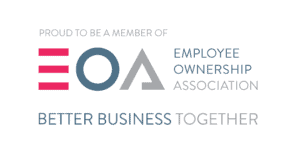Employee Ownership Trusts
The Employee Ownership Trust (EOT) is a special form of employee benefit trust introduced in September 2014 as an alternative method to sell a business. It is an indirect form of employee ownership in which a trust holds a controlling stake in a company on behalf of all its employees and provides an incentive for owners to sell a controlling stake in their business.
As well as MBO’s, our corporate lawyers are experienced in leading people through the sale process to employees through Employee Ownership Trusts. We are experienced in setting up the trust, establishing the trust company, share purchase agreement, including structuring the deferred consideration documentation.
Clarkslegal is a proud member of the Employee Ownership Association.
“Very professional, knowledgeable and accessible lawyers.”
